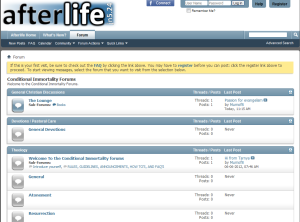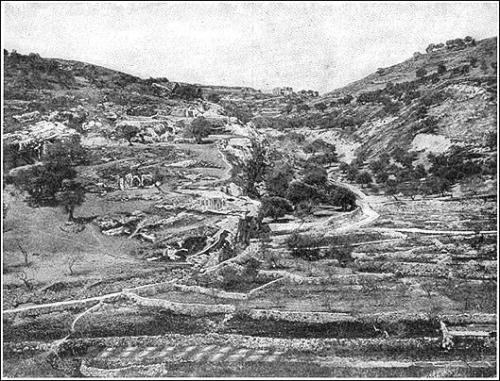Did you say sleep!??!!
A long standing tradition within evangelical Christianity asserts that death is a move to a new level of consciousness, that those awaiting Christ’s return for reward or punishment do so in a state that looks very much like they are already being rewarded or punished. Consequently, anyone who dares to imply that the intermediate state is one of unconscious sleep runs the risk of being branded a heretic or cult member.
Nevertheless, it would do us all well to return to biblical terminology and perhaps jettison some of these traditions that keep us from using it. The biblical authors knew what they were talking about. The Holy Spirit inspired them to write words which expressed the way things really are. It is not their fault that the popular church has chosen to see and say things differently.
and
I’ve been to several funerals the last few years where I have heard the preachers often say that the deceased is now “more alive than ever” up in heaven. Yet this runs counter to the most consistent description used in The Bible in reference to the dead. A description that isn’t something that means energized and alert, but the exact opposite with the word “sleep”. Of course this is a metaphor (something used, or regarded as being used, to represent something else) to describe the death. This metaphor is repeatedly used throughout many of the Old Testament books.
Yes we did say sleep. The Bible calls death, sleep.
Many sincere Christians come to me to comfort me at the loss of my husband and told me that he is now enjoying Jesus.
The Bible gives advice on the words to comfort the grieving:
13 But I do not want you to be ignorant, brethren, concerning those who have fallen asleep, lest you sorrow as others who have no hope. 14 For if we believe that Jesus died and rose again, even so God will bring with Him those who sleep in Jesus.15 For this we say to you by the word of the Lord, that we who are alive and remain until the coming of the Lord will by no means precede those who are asleep. 16 For the Lord Himself will descend from heaven with a shout, with the voice of an archangel, and with the trumpet of God. And the dead in Christ will rise first. 17 Then we who are alive and remain shall be caught up together with them in the clouds to meet the Lord in the air. And thus we shall always be with the Lord. 18 Therefore comfort one another with these words.
{emphasis mine}
Someone, who I appreciate very much and loves my 3 year old daughter, told her, that her Daddy is with Jesus and is very happy there. And Jesus needed him in heaven! Which means that Jesus needed him more than her. How could Jesus need him more than his little daughter? DD3 was greatly puzzled by these words because I had told her that he Daddy is asleep and waiting for Jesus to come back and wake him up. And only Jesus could. (My translation into 3 year language of 1 Thess 4). She had seen him lying down in his coffin, unable to be woken and she had seen the coffin lowered into the ground. And Jesus is very powerful so how could he need Daddy. Anyway, there is no answer to these questions.
Please note whatever words people used to bring us comfort, we understood them in the light of their intention, which was to love and comfort us. And we were comforted:-)





